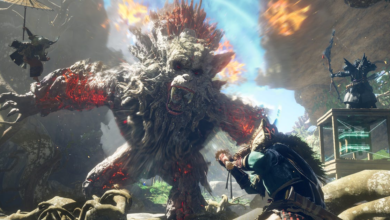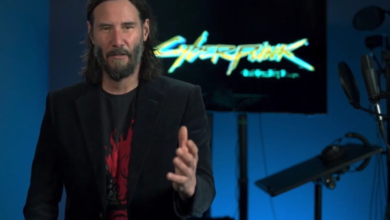E3 2021 is all-digital. Next summer, it may finally be back in person, but different
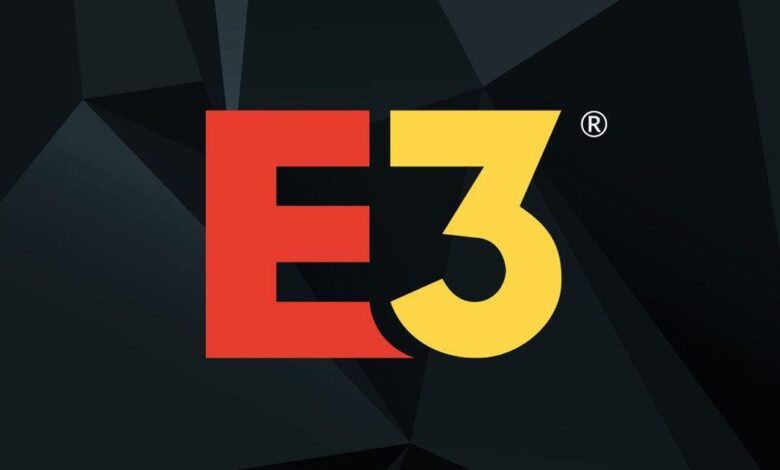
[ad_1]
The video game industry’s biggest gathering was canceled last year. This time, it’s all-digital.
E3
Typically, this weekend turns to madness in downtown Los Angeles, as about 70,000 people descend on the city’s convention center and surrounding neighborhoods for the week-long Electronic Entertainment Expo, or E3. The show is the largest annual gathering for the game industry, where companies show off new titles and hype up their plans.
But starting this weekend, E3 will be held entirely online, a shift from last year when it was canceled amid the coronavirus pandemic. In 2020, Microsoft and Sony spent the summer months hyping their next-generation Xbox and PlayStation video game consoles in separate events. Stanley Pierre-Louis, head of the Entertainment Software Association trade group that puts on E3, said that while those events were successful, the industry wanted to do more as a group as well.
How to watch: All the major announcements we’ll be following during E3 June 12-15
“Both fans and media were looking for a center of gravity in which to really learn what was going to be showcased in the coming year,” he said, and that’s what E3 typically is. It won’t be the same as when people are in person, he added, but the ESA sees this year as an experiment in finding ways to make the show better for the millions of aggregate people who typically tune into the biggest press conferences from Microsoft, Nintendo and Sony online. “It’s going to be a work in progress.”
There’s good reason for the industry to experiment. Many people turned to video games as both a form of entertainment and a way to socialize as their lives were turned upside down by the pandemic last year. In the US, game spending hit a record $56.9 billion in 2020, up 27% from a year prior. Anecdotally, developers tracked massive jumps in game playing throughout other parts of the world as well.
Now, half a year after Microsoft’s $399 Xbox Series S, $499 Xbox Series X and Sony’s $499 PlayStation 5 all launched, game companies are hoping to show off compelling new titles that will whet people’s appetites for the fall when many of them arrive. This year, they’re expected to include Microsoft’s Halo Infinite space war epic game, Battlefield 2042 from Electronic Arts and Ubisoft’s competitive Rainbow Six Extraction tactical shooting game.
How to watch: Microsoft’s about to show off its next big Halo game. Watch live
Gamers are also likely to hear news on highly anticipated games slated for next year or later, including Bethesda’s new Starfield adventure game, the latest Batman comics games from Warner Bros. and Nintendo’s highly anticipated new Zelda sequel, Breath of the Wild 2.
Below are edited excerpts from our conversation with Pierre-Louis, a few days before E3 begins.
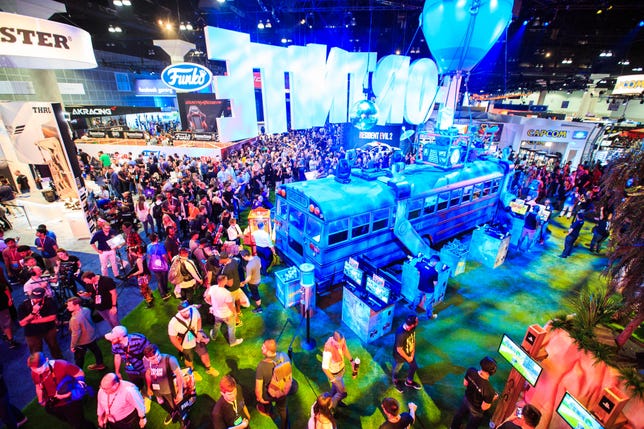
For more than two decades, E3 has been the video game industry’s biggest event of the year.
Josh Miller/CNET
One of the conversations people tend to have around big trade shows like E3 these days is, why have them in the first place? Even if we take the pandemic out of it for a moment, can you share about what value you think E3 brings to the community and to the companies?
Pierre-Louis: I think the relevance of E3 is that it creates an opportunity to coalesce around games. One of the things we saw last year, having had to cancel it because of the pandemic and having seen the experience of seeing amazing presentations throughout the summer, was that both fans and media were looking for a center of gravity in which to really learn what was going to be showcased in the coming year.
One of the things we had been doing for several years … is experimenting with how do we keep it relevant and exciting. E3 started off, as you well know, as an opportunity for game developers and platform creators to speak to physical retailers on “here’s what’s coming down the pike for end of the year sales.”
We’ll continue to experiment, and in fact we’ll take what we learned from this year all digital event to apply it to physical events, because the audience has really broaden from retailers to more of the media, more fans, more influencers and so trying to reach those audiences, particularly with global basis, requires a global tool and global reach.
How do you feel like the show needs to change to kind of meet that need?
Pierre-Louis: I think that the thing that physical events bring is a level of excitement because people are together. And there’s something about being at an event with other people that creates a sense of excitement, being at a concert, all these physical events. That doesn’t mean that they don’t also resonate in a digital capacity, but sometimes having that audience creates even more excitement to the digital audience.
I think we’re trying to find what are the things that resonate with the audience. It’s going to be a work in progress.
So I’m assuming if all goes well with vaccines, you’re planning to be in person next year?
Pierre-Louis: We anticipate having a physical show, and we think there’s a lot of value in having that physical show and bringing the digital elements to it. It just requires a lot of advanced thinking and planning and logistics to make those things possible.
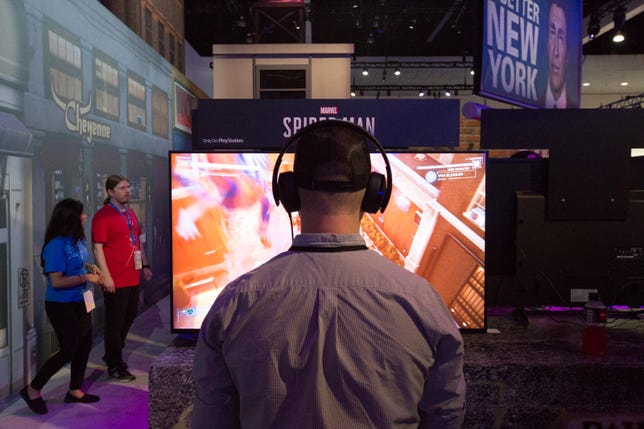
Gaming has become a key part of the tech and social media worlds.
Josh Miller/CNET
When we think of education and advocacy — the thing one of the things ESA really does a lot of — it felt like, whenever there was a conversation in Washington DC around video games, there’s still not fully an understanding of the value of video games either in the White House with the previous president or on Capitol Hill. So how do you feel like that is needing to change? Because it seems like at least the message hasn’t really fully gotten through, whether it’s about violence or other plusses or minuses.
Pierre-Louis: We’ve seen an evolution. You mentioned the violence issue — each media form has faced this going back decades. And we certainly faced it in the ’90s and 2000s of people looking at video games in this negative light. Over time, what we’ve learned is that people are opened up to the value of games in new in different ways.
One of the things we pointed out over the past years in Washington is that the same video games sold in the United States are sold all around the world. But the gun violence issue that occurs United States isn’t replicated in other places around the world, even though the same video games are sold and all these places around the world. That seems to have really resonated with people on understanding that games don’t necessarily have this negative implication.
We also create jobs, and the economic impact of video games is enormous in the United States. We put out a report in December that showed that the economic effect of just video games from 2019 was around $40 billion, and then, when you add in ancillary industries, suppliers and others who support industry or who we rely on in some way, it grows to more than $90 billion, and if you look at job growth it’s just enormous.
We have a sort of multiplier effect, that every job we create in our industry creates three more jobs in another industry because of the needs that we have in manufacturing and sales and all these other things. That really resonated with policymakers.
[ad_2]
Source link





